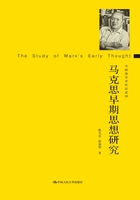Our gymnasium has been filled with large and enthusiastic classes for eighteen years in spite of the popularity of dancing and other possible substitutes, while the Saturday evening athletic contests have become a feature of the neighborhood. The Settlement strives for that type of gymnastics which is at least partly a matter of character, for that training which presupposes abstinence and the curbing of impulse, as well as for those athletic contests in which the mind of the contestant must be vigilant to keep the body closely to the rules of the game. As one sees in rhythmic motion the slim bodies of a class of lads, "that scrupulous and uncontaminate purity of form which recommended itself even to the Greeks as befitting messengers from the gods, if such messengers should come," one offers up in awkward prosaic form the very essence of that old prayer, "Grant them with feet so light to pass through life." But while the glory stored up for Olympian winners was at the most a handful of parsley, an ode, fame for family and city, on the other hand, when the men and boys from the Hull-House gymnasium bring back their cups and medals, one's mind is filled with something like foreboding in the reflection that too much success may lead the winners into the professionalism which is so associated with betting and so close to pugili**. Candor, however, compels me to state that a long acquaintance with the acrobatic folk who have to do with the circus, a large number of whom practice in our gymnasium every winter, has raised our estimate of that profession.
Young people who work long hours at sedentary occupations, factories and offices, need perhaps more than anything else the ******* and ease to be acquired from a symmetrical muscular development and are quick to respond to that fellowship which athletics apparently affords more easily than anything else. The Greek immigrants form large classes and are eager to reproduce the remnants of old methods of wrestling, and other bits of classic lore which they still possess, and when one of the Greeks won a medal in a wrestling match which represented the championship of the entire city, it was quite impossible that he should present it to the Hull-House trophy chest without a classic phrase which he recited most gravely and charmingly.
It was in connection with a large association of Greek lads that Hull-House finally lifted its long restriction against military drill. If athletic contests are the residuum of warfare first waged against the conqueror without and then against the tyrants within the State, the modern Greek youth is still in the first stage so far as his inherited attitude against the Turk is concerned. Each lad believes that at any moment he may be called home to fight this long-time enemy of Greece. With such a genuine motive at hand, it seemed mere affectation to deny the use of our boys' club building and gymnasium for organized drill, although happily it forms but a small part of the activities of the Greek Educational Association.
Having thus confessed to military drill countenanced if not encouraged at Hull-House, it is perhaps only fair to relate an early experience of mine with the "Columbian Guards," and organization of the World's Fair summer. Although the Hull-House squad was organized as the others were with the motto of a clean city, it was very anxious for military drill. This request not only shocked my nonresistant principles, but seemed to afford an opportunity to find a substitute for the military tactics which were used in the boys' brigades everywhere, even in those connected with churches. As the cleaning of the filthy streets and alleys was the ostensible purpose of the Columbian guards, I suggested to the boys that we work out a drill with sewer spades, which with their long narrow blades and shortened handles were not so unlike bayoneted guns in size, weight, and general appearance, but that much of the usual military drill could be readapted. While I myself was present at the gymnasium to explain that it was nobler to drill in imitation of removing disease-breeding filth than to drill in simulation of warfare; while I distractedly readapted tales of chivalry to this modern rescuing of the endangered and distressed, the new drill went forward in some sort of fashion, but so surely as I withdrew, the drillmaster would complain that our troops would first grow self-conscious, then demoralized, and finally flatly refuse to go on. Throughout the years since the failure of this Quixotic experiment, I occasionally find one of these sewer spades in a Hull-House storeroom, too truncated to be used for its original purpose and too prosaic to serve the purpose for which it was bought. I can only look at it in the forlorn hope that it may foreshadow that piping time when the weapons of warfare shall be turned into the implements of civic salvation.
Before closing this chapter on Socialized Education, it is only fair to speak of the education accruing to the Hull-House residents themselves during their years of living in what at least purports to be a center for social and educational activity.















